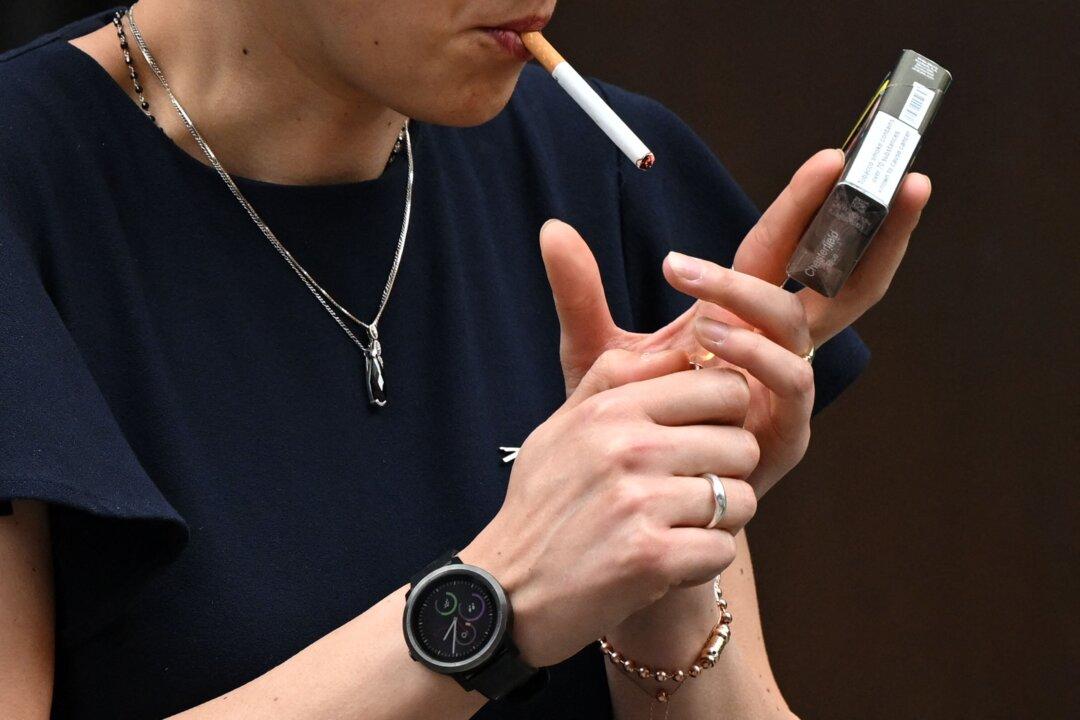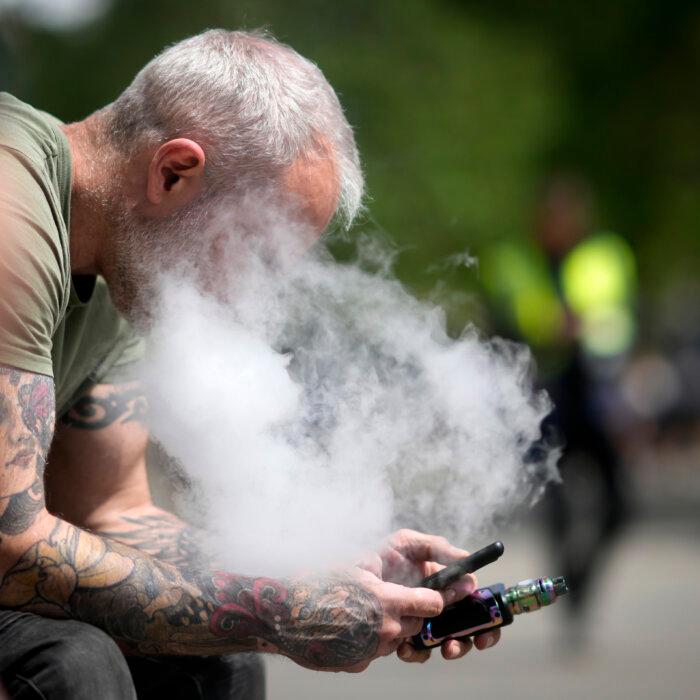MPs have voted through the so-called “smoking ban” bill, designed to create a “smoke free generation” by gradually raising the age at which it is legal to buy cigarettes and vaping products.
The Tobacco and Vapes Bill was introduced to Parliament by the previous Conservative government, and was carried forward by Labour, comfortably passing its second reading on Tuesday by 415 votes to 47.
If, as expected, the bill becomes law, it will prevent anyone born after Jan. 1, 2009 from ever legally buying tobacco products, although it will not criminalise the act of smoking.
Industry ‘Cynically’ Targets Youngsters
Health Secretary Wes Streeting told the House of Commons that the bill will “come down on the vaping industry like a ton of bricks to prevent a new generation of children and young people from getting hooked on nicotine.”Intervening, Conservative MP Andrew Rosindell argued that “banning things very rarely works,” adding, “Surely we should be promoting the concept of freedom with responsibility and allowing people to make choices about their own lives?”
Streeting said tobacco is “uniquely addictive, uniquely harmful,” adding: “There is no liberty in addiction. There is no freedom in addiction, and the logical extension of the libertarian argument he puts forward would be the end of the ban on indoor smoking.
“A new generation of children are getting hooked on nicotine, and there should be no doubt about the cause and no illusions that this has happened by accident.”
‘Phased Approach’
Disposable vapes will be banned from June 2025 under separate environmental legislation, while the sale of vapes in vending machines and their free distribution will be stopped.Some MPs argued that the legislation should go even further, including Liberal Democrat Layla Moran, who asked: “I do have a concern that if it is that much of an issue, why are we not just banning it? Under an age of say 25, that would have been another way to go.
“What is the thinking behind an age escalator as opposed to a ban under an age where people don’t need new ID every time in order to do this?”
‘Raises Prospect of ID Card’
Moran’s Liberal Democrat colleague Helen Morgan said she would vote for the bill, but warned that it “raises the prospect of an ID card, because those people who do choose to start smoking will potentially be forced to carry an ID card or some other form of ID with them for the rest of their lives, and that is a concern ... for various issues of privacy and personal liberty.”The government will provide an additional £70 million for stop smoking services to help people quit, the Department of Health said, while hospital staff will be asked to discuss smoking with patients while delivering routine care.
The government has announced that £10 million is also being given to Trading Standards to crack down on products being sold on the black market. The latest data show more than a million illicit vapes were seized in the UK in 2023–24, a 59 percent increase compared with the previous year.

Cost to the NHS
The bill also includes powers to introduce a licensing scheme for retailers to sell tobacco, vape, and nicotine products in England, Wales, and Northern Ireland.Some MPs have raised concerns about how it will be policed, in practice, if it becomes law. The legislation allows for on-the-spot fines for any shopkeepers found to be selling to those under age.
But England’s chief medical officer, Professor Sir Chris Whitty, said in a statement that the bill should improve “the health of the nation.”
“Smoking results in direct harm across a person’s life course but also causes harms to others around them, including children, pregnant women and the medically vulnerable,” he said.
NHS National Medical Director Professor Sir Stephen Powis said that smoking remains the leading cause of preventable deaths and “has a huge impact on the NHS, costing billions every year.”
Civil Liberties Concerns
Civil liberties campaigners have spoken out against the legislation, in particular highlighting the anomaly that will be created if some adults do not have the same rights as their peers based on their date of birth.Simon Clark, director of the smokers’ rights group FOREST, said: “Denying future generations of adults the right to buy cigarettes and other tobacco products legally won’t stop people smoking.
“Creeping prohibition will simply drive the sale of tobacco underground and into the hands of criminal gangs and illicit traders.”
The bill also grants the government powers to extend the indoor smoking ban to outdoor spaces, with children’s playgrounds, outside schools, and hospitals all being considered in England, subject to consultation.
Conservative Party leader Kemi Badenoch was among the 47 MPs to vote against the bill, according to the division list, allowing her MPs a free vote on the matter.
The division list also showed seven Liberal Democrats and four Reform MPs, along with 35 Conservatives, opposed the bill.
The bill will now undergo further scrutiny before it is returned to the Commons for a third and final reading.







